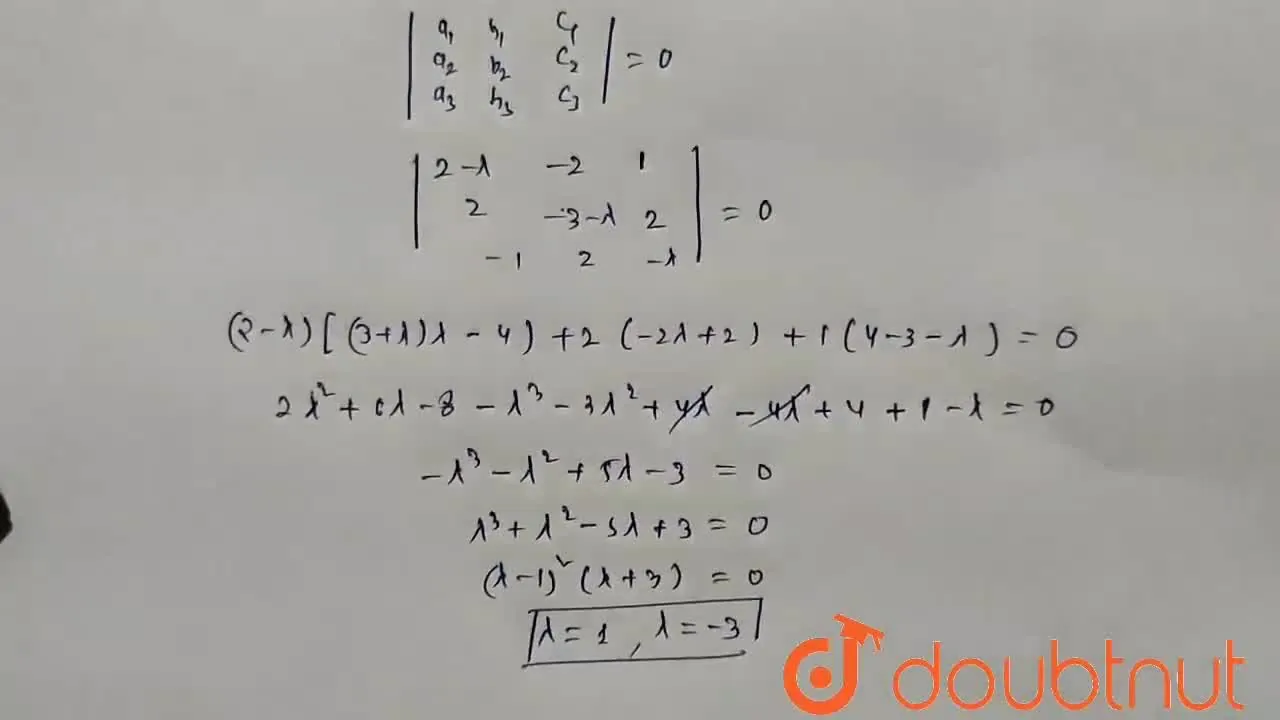The set of all values of λ for which the system of linear equations: 2x1−2x2+x3=λx1,2x1−3x2+2x3=λx2,−x1+2x2=λx3 has no trivial solution, (A) contains more than two elements (B) is in empty set (C) is a singleton (D) contains two elements
Step by step video & image solution for The set of all values of lamda for which the system of linear equations: 2x_1-2x_2+x_3=lamdax_1, 2x_1-3x_2+2x_3=lamdax_2, -x_1+2x_2=lamdax_3 has no trivial solution, (A) contains more than two elements (B) is in empty set (C) is a singleton (D) contains two elements by Maths experts to help you in doubts & scoring excellent marks in Class 12 exams.
Related Playlists
Similar Questions
The set of the all values of λ for which the system of linear equations
2x1−2x2+x3=λx1
2x1−3x2+2x3=λx2
−x1+2x2=λx3 has a non-trivial solution,View SolutionThe set of all values of λ for which the system of linear equations
x−2y−2z=λx
x+2y+z=λy
−x−y=λz
has a non-trivial solutionView SolutionThe set of all values of λ for which the system of linear equations: x−2y−2z=λx, x+2y+z=λy and −x−y=λz has a non-trivial solution:
(a) is an empty sheet
(b) is a singleton
(c) contains more than two elements
(d) contains exactly two elementsView SolutionIf S is the set of distinct values of 'b for which the following system of linear equations x+y+z=1 x+ay+z=1 ax+by+z=0 has no solution, then S is : a finite set containing two or more elements (2) a singleton an empty set (4) an infinite set
View SolutionConsider the system of linear equations:
x1+2x2+x3=3
2x1+3x2+x3=3
3x1+5x2+2x3=1
The system hasView SolutionConsider the system of linear equations:
x1+2x2+x3=3
2x1+3x2+x3=3
3x1+5x2+2x3=1
The system hasView SolutionConsider the system of linear equations; x−1 +2x2+x3=3,2x1+3x2+3=3,3x1+5x2+2x3=1 The system has Infinite number of solutions Exactly 3 solutions A unique solution No solution
View SolutionFind the set of real value(s) of a for which the equation |2x+3|+|2x−3|=ax+6 has more than two solutions.
View SolutionFind the set of real value(s) of a for which the equation |2x+3|+|2x−3|=ax+6 has more than two solutions.
View SolutionFind the set of values of x for which tan3x−tan2x1+tan3xtan2x = 1
View Solution


